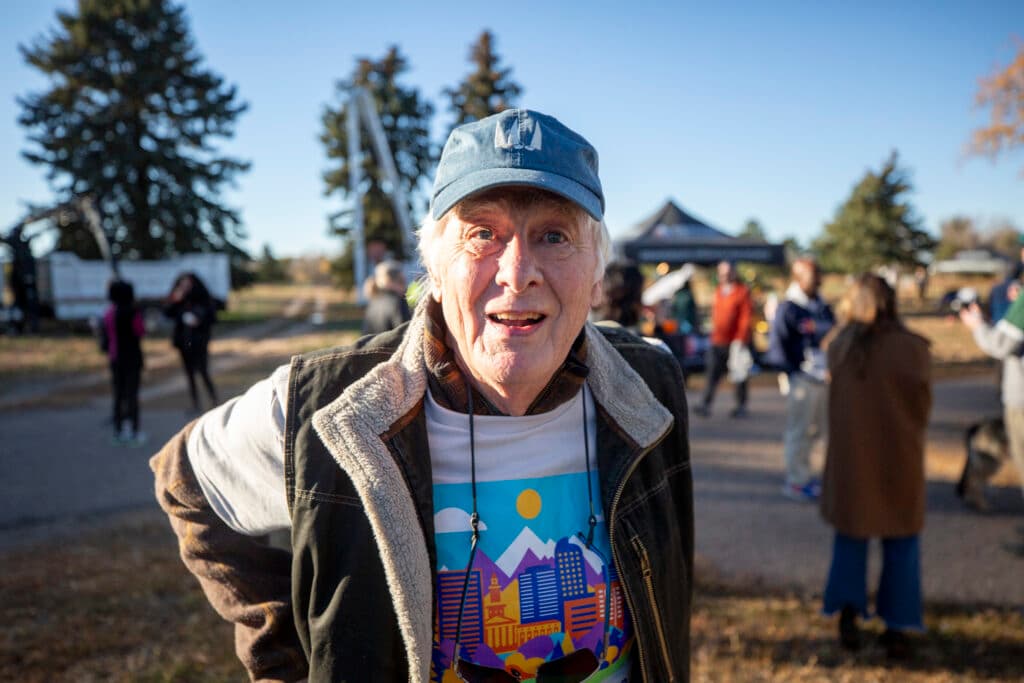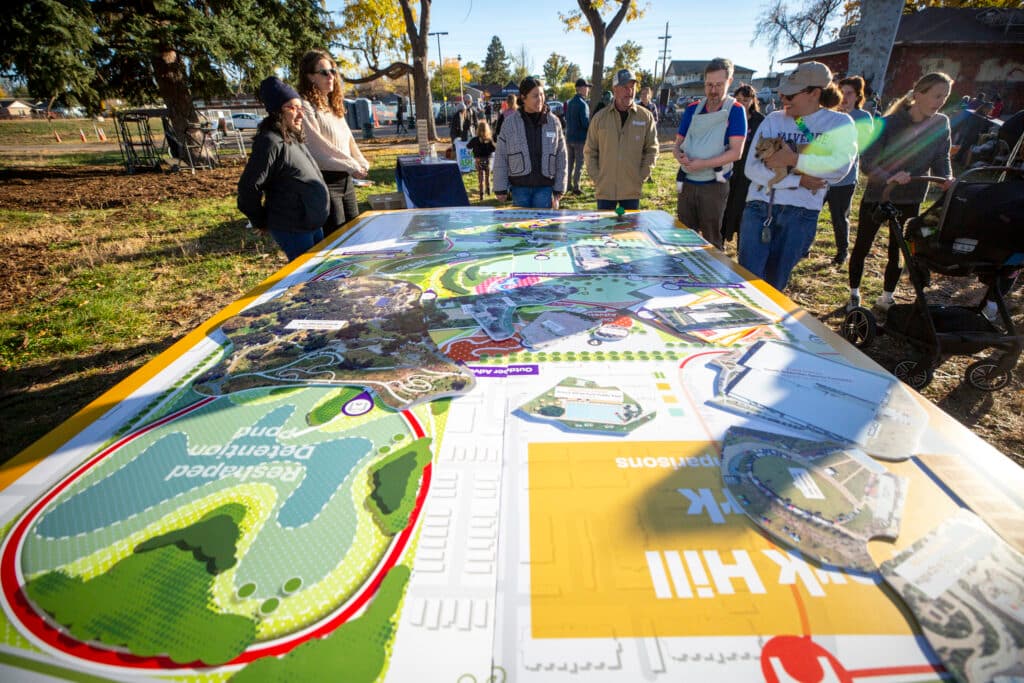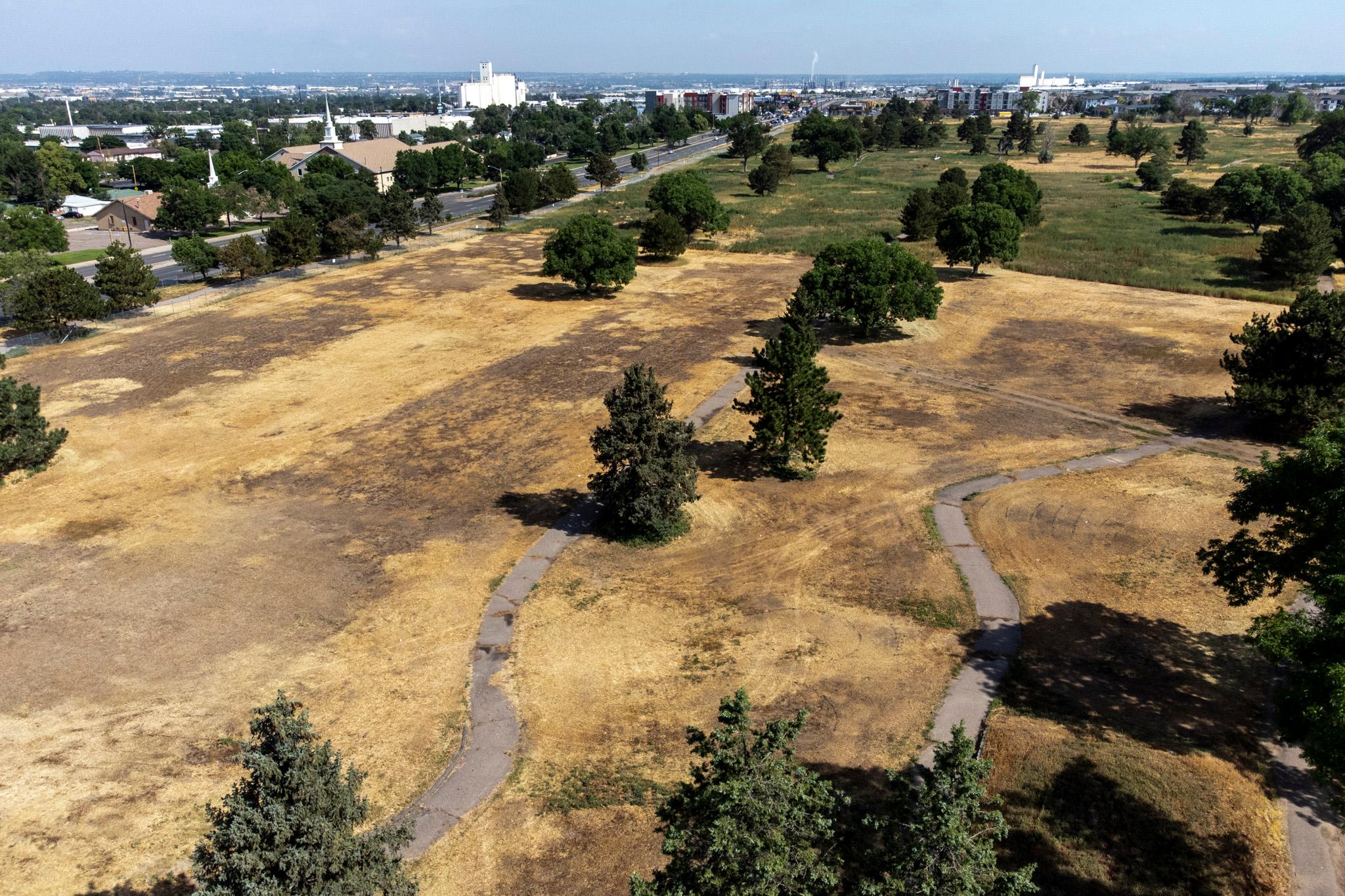Denver voters on Tuesday approved $70 million in debt funding to turn the former Park Hill Golf Course into the city’s fourth-largest park.
The city acquired the property in recent months. Last week, the land opened as a bare-bones park — mostly just weeds and paths — from sunup to sundown.
The funding will pay for the first phase of construction on a much more ambitious plan. The overall budget of the park is still unknown but could be hundreds of millions in total.
Open-space advocate Woody Garnsey, who has fought to preserve the land as open space for nearly a decade, was elated by the results.
“It shows that Denver citizens really care about the infrastructure of the city,” he said. “We're particularly thrilled that there will be $70 million available in bond money to build out the new Park Hill Park that we've been working so hard for for so many years.

The project was one of many that will be funded by Vibrant Denver, a $950 million package of long-term debt to fund projects across the city. The projects will be paid for with existing property tax rates.
Park Hill Park was the largest parks project in the proposal, and one of the most costly overall.
The design firm Sasaki has been working on a community visioning process and design for the park that should be wrapped in the coming months.
"I'm incredibly impressed with what Sasaki has done,” Garnsey said. “It's thrilling to see the diversity and volume of people who showed up and expressed their views on what ought to happen there.”
Sasaki’s current design includes sports fields, a dog park, a miniature golf course, an outdoor adventure area, a field house, a creek and more.
Johnston initially supported Westside Investment Partner’s ambitious development on the land that would have included housing, retail and a developer-funded park. But voters shot that down in 2023.

After taking office, the mayor pledged to turn the land into a park and entered into a land-swap deal with the developer for land near the airport. The final deal is still not complete, though the city now owns the former golf course.
The park’s inclusion in the bond package angered some voters and housing advocates, who said the city was rewarding voters for rejecting housing.
The city does not know where all the funding for the project will come from — especially as Denver faces a $200 million budget deficit in 2026 and Johnston has made cuts to the parks department.
But the bond provides the seed funding needed to begin what will likely be a legacy project for the mayor.













